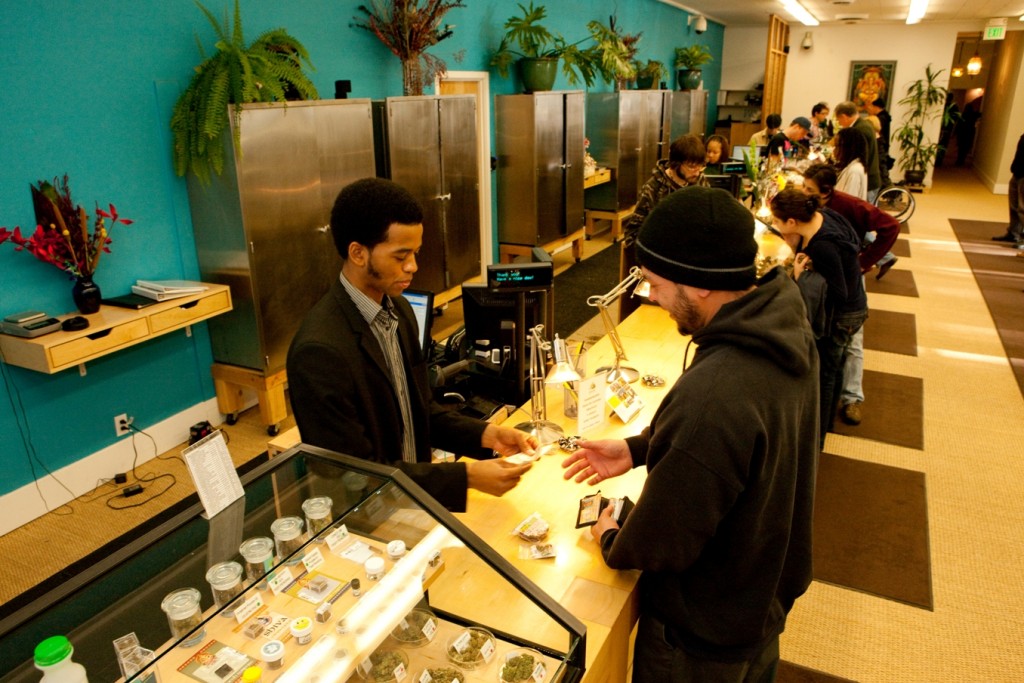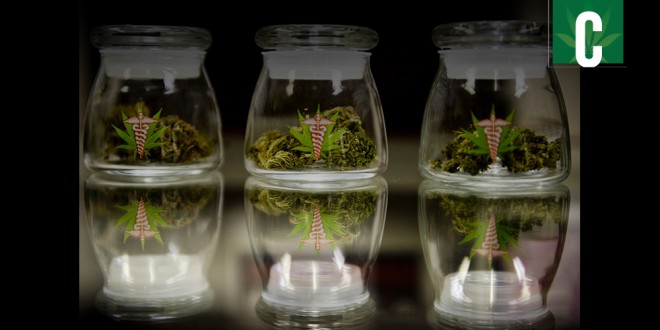Legal marijuana is coming to California, and it is increasingly likely it will arrive next month.
That’s when voters will decide whether they want to follow the legalization experiments in Colorado, Washington, Oregon, Alaska, and the District of Columbia. Several recent polls show broad support for Proposition 64, the legalization initiative that will appear on the statewide ballot Nov. 8.
But what will happen to California marijuana businesses once the proposal passes? When will it take effect, and what will it require? Here’s a breakdown of how how legalization will affect California companies – whether it gets here in 2016 or some other year.
How will it work?
Legal recreational marijuana will be grown, processed, transported, and sold under essentially the same rules as medical cannabis. Those regulations were signed into law by Gov. Jerry Brown last year and allow for 12 types of business licenses.
Of course, there will be some differences between the two legal markets. Taxes – and thus prices – will be lower on medicinal pot, and patients will still have to obtain doctor recommendations to qualify. But the new rules require both sides of the industry to obtain proper licenses and operate within both local and state law.
How to get a license?
Business owners will not have access to licenses to grow, handle, or sell marijuana until at least 2018.
Those permits will come in three categories: cultivation licenses from the California Department of Food and Agriculture; manufacturing licenses from the Department of Public Health; and licenses from the Bureau of Medical Cannabis Regulation for distribution, transport, lab testing, and dispensary sales.

What about local laws?
The legalization measure proposed by tech billionaire Sean Parker and fellow reformers will allow local governments to set their own, more restrictive regulations – or even ban pot businesses outright. Any business must get a local permit before applying for state approval.
And a ban is a ban: It will be illegal for any marijuana business to operate in a community that enforces prohibition locally. This includes cities, counties, and other municipalities.
Who can qualify for a business license?
Recreational cannabis licenses will be available first to qualifying marijuana businesses that can prove they were operating legally before Jan. 1, 2016. Other businesses may apply after those permits are taken.
How much will it cost to get a license?
California state officials have yet to set a cost schedule for new licenses. But businesses will likely be required to renew on an annual basis. Costs could be significant, especially for operators entering the legal market for the first time.

What about customers?
The legalization measure will allow any adult 21 years or older to buy, possess, and use up to 1 ounce of marijuana for any reason. Adult residents will also be able to grow up to six pot plants at home.
Results in other states where the drug is legal for recreation suggest sales will be brisk once the first retail stores open. In the meantime, the potential customer base will grow as more Californians become comfortable buying weed in the open, with or without a medical cannabis card.
—
Tell us: Are the rules surrounding legal marijuana fair? Leave a comment below.
 California Marijuana Market Breaking "Marijuana News" from CA
California Marijuana Market Breaking "Marijuana News" from CA





